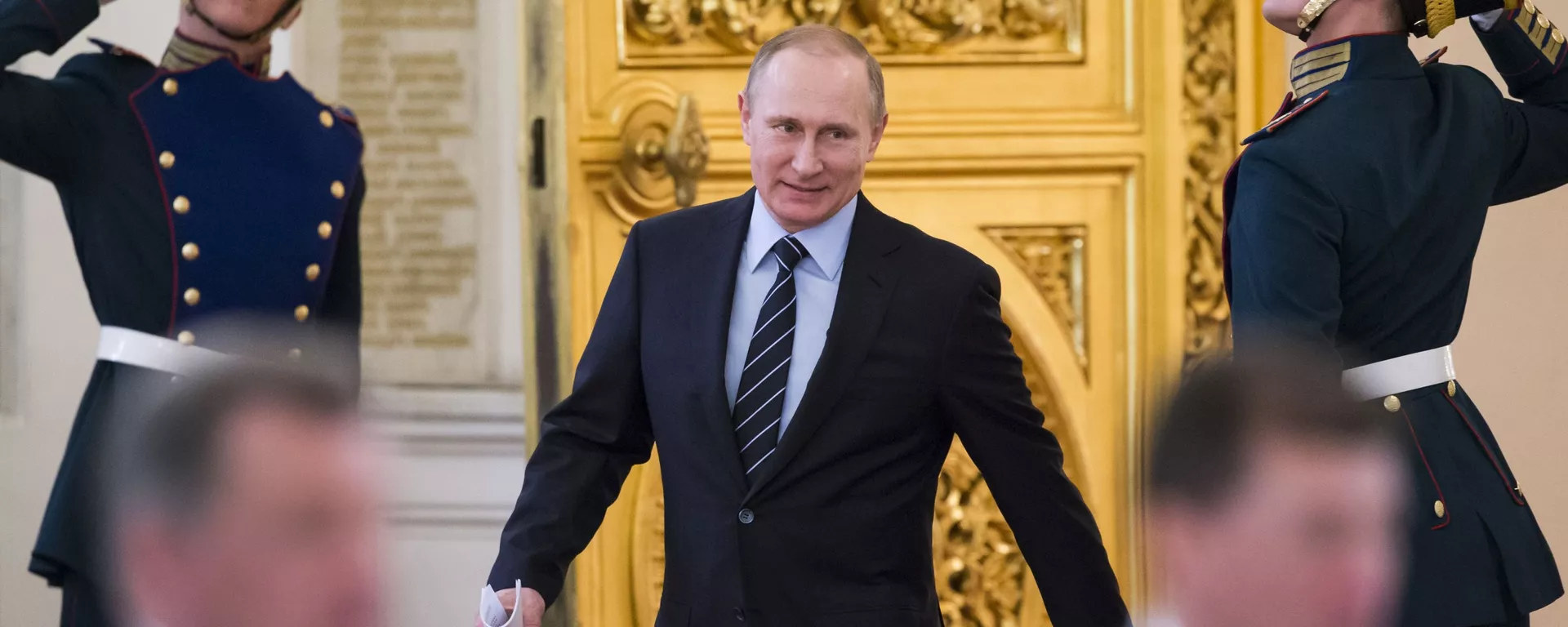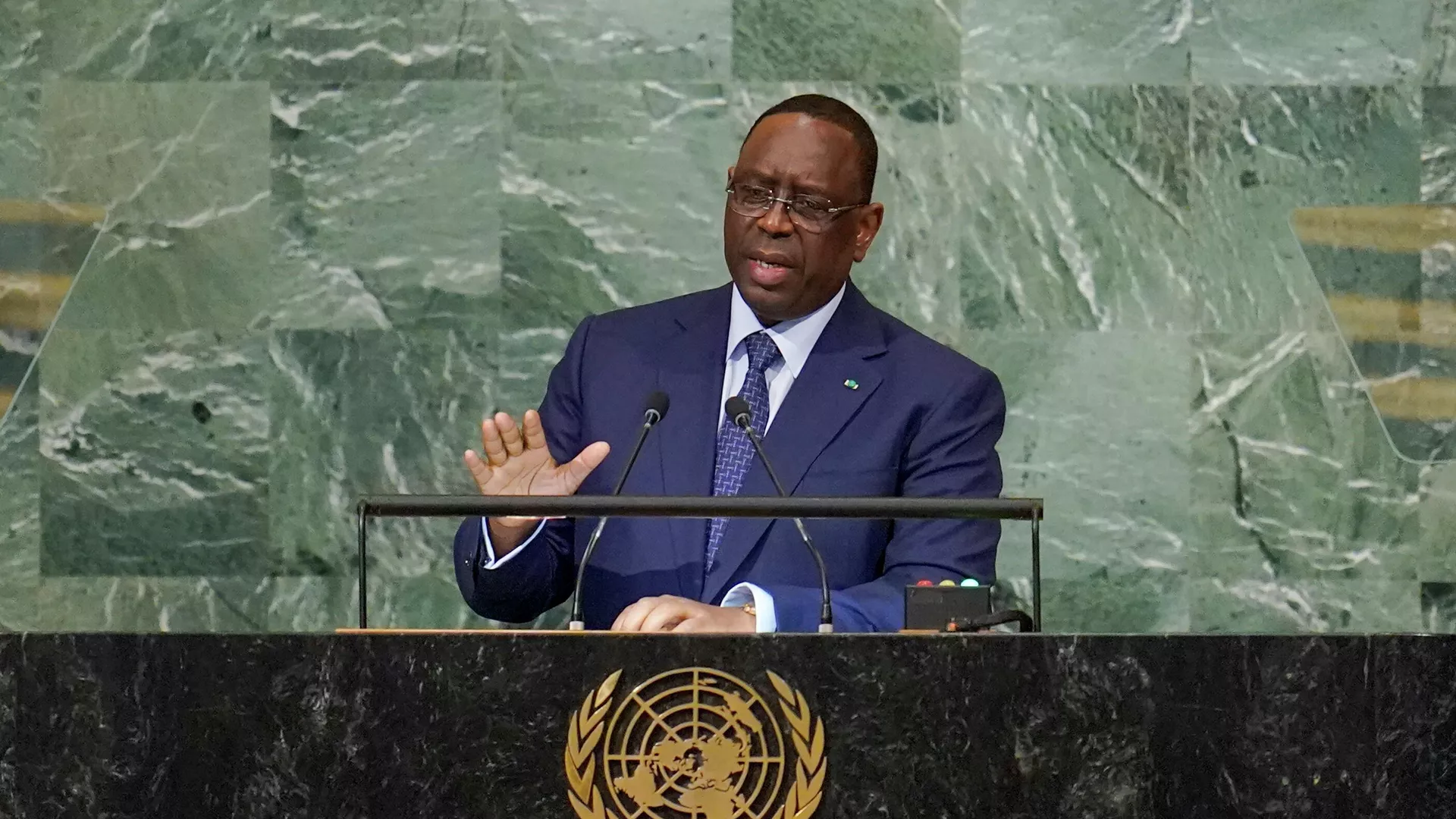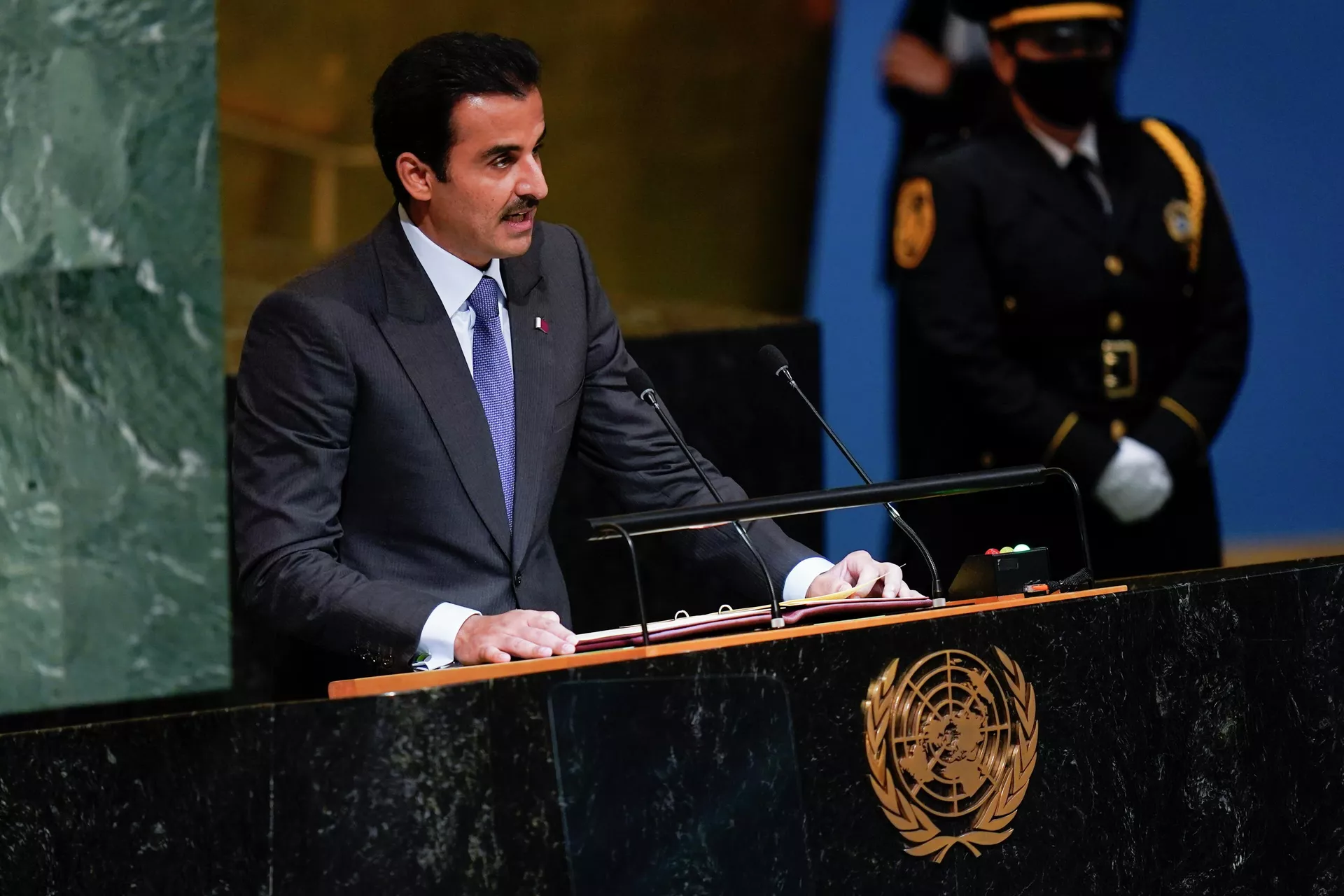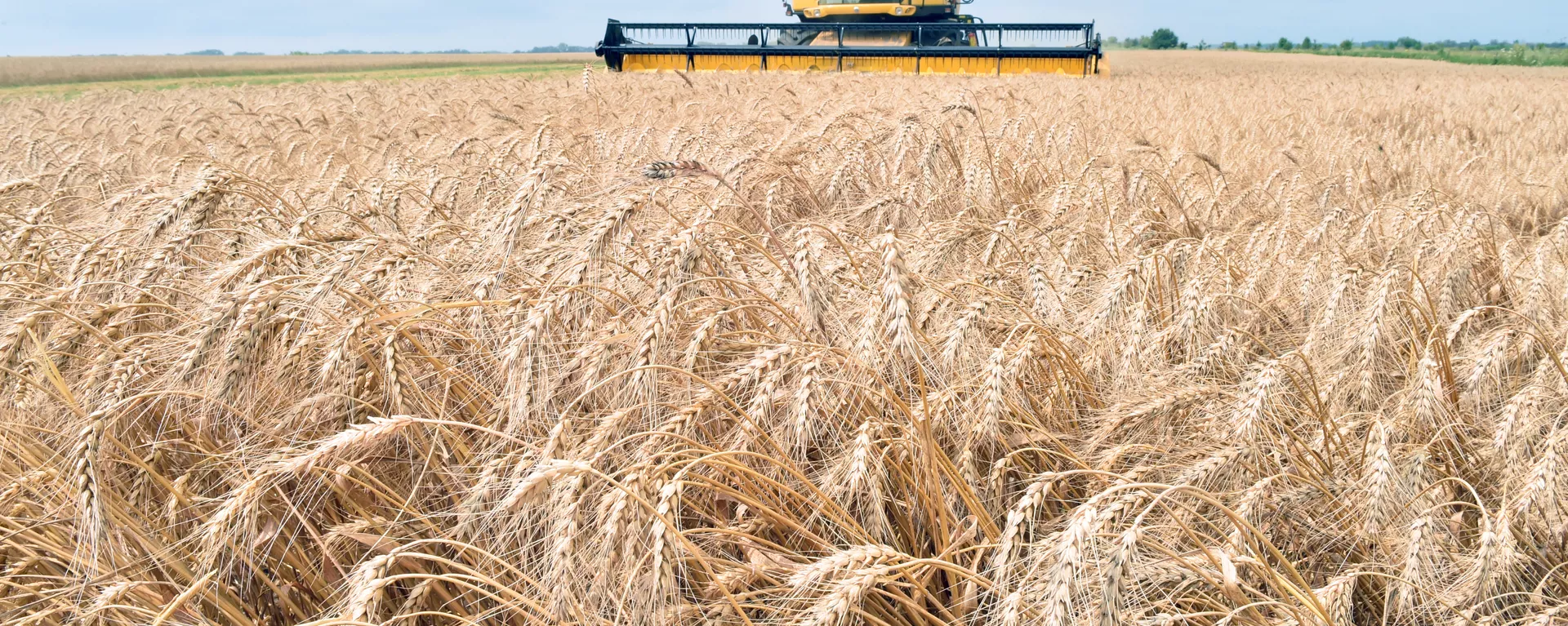https://sputnikglobe.com/20220922/unga-why-non-western-states-reject-us-narrative-on-ukraine-1101084939.html
UNGA: Why Non-Western States Reject US Narrative on Ukraine
UNGA: Why Non-Western States Reject US Narrative on Ukraine
Sputnik International
Earlier this week, the leaders of a number of non-Western countries departed from the Ukraine crisis agenda promoted by the West at the 77th session of the UN... 22.09.2022, Sputnik International
2022-09-22T12:03+0000
2022-09-22T12:03+0000
2023-01-15T17:27+0000
analysis
us
united nations general assembly (unga)
senegal
qatar
jordan
refugee crisis
energy crisis
the united nations (un)
ukraine
https://cdn1.img.sputnikglobe.com/img/07e6/09/16/1101084917_0:0:2810:1582_1920x0_80_0_0_7c59f1b2ab020e30b553e3032ac9ed5b.jpg.webp
During their speeches at UNGA, King Abdullah II of Jordan and Emir Tamim bin Hamad Al Thani of Qatar shifted the major focus to the Israeli-Palestinian conflict, as well as the climate change, refugee, and energy crises. President Macky Sall of Senegal, who chairs the African Union (AU), warned against turning Africa into a theater of a "new Cold War" between great powers, alluding to the pressure exerted by the West on the continent's leaders to pick sides in the Ukraine conflict.While delivering his speech on Tuesday, Sheikh Al Thani called for a peaceful solution of the Ukraine crisis, placing a bigger emphasis on other urgent issues, such as the Israeli-Palestinian standoff; the conflicts in Syria, Libya and Yemen; Afghanistan's isolation; and the problem of energy shortages.For his part, Senegalese President and AU Chair Macky Sall raised the issue of the under-representation of Africa on the world stage: "I would like to remind you of our request for the African Union to be granted a seat within the G20, so that Africa can, at last, be represented where decisions are taken that affect 1,400,000,000 Africans." Sall also reminded the audience that the spread of terrorism in Africa is "not just an African matter," but "a global threat that falls under the primary purview of the (UN) Security Council."Likewise, President Faustin-Archange Touadéra of the Central African Republic (CAR) singled out the serious security, food, and public health crises faced by the CAR and other African states, which have been exacerbated by a persistent lack of international financial support.When it comes to African countries, many of them are not eager to join the West's anti-Russia camp, given that Russia – as well as China – "has been very proactive in assisting" the continent, according to Rasmussen.However, the West is not satisfied with the Global South's neutrality and is unlikely to reduce its pressure, according to the scholar. He projects that the West will try to continue support for Kiev "rather than seeking peace or recognizing Russia’s valid security concerns." Rasmussen also expects increased tensions around the world, which could include the resurrection of Daesh*, increased violence in Syria and Libya, tensions in Taiwan, Kosovo, Nagorno-Karabakh, etc."Moreover, we will see the threat of the use of secondary sanctions on neutral countries, such as we have recently seen regarding the use of the Mir card in Turkey, Vietnam and Kazakhstan," the scholar notes. "Additionally, we may make desperate attempts at more color revolutions."At the same time, Rasmussen acknowledges that "the draconian and ill-thought sanctions on Russia have backfired," with the EU and the UK being economically hurt much more seriously than the US.
https://sputnikglobe.com/20220624/how-the-uk-is-doing-its-best-to-stir-a-food-crisis-while-pinning-the-blame-on-russia-1096628806.html
https://sputnikglobe.com/20220921/checkmate-putins-address-marks-game-over-for-kievs-us--nato-backers-analysts-say-1101056726.html
senegal
qatar
jordan
ukraine
israel
Sputnik International
feedback@sputniknews.com
+74956456601
MIA „Rossiya Segodnya“
2022
News
en_EN
Sputnik International
feedback@sputniknews.com
+74956456601
MIA „Rossiya Segodnya“
Sputnik International
feedback@sputniknews.com
+74956456601
MIA „Rossiya Segodnya“
us, united nations general assembly (unga), senegal, qatar, jordan, refugee crisis, energy crisis, the united nations (un), ukraine, israel
us, united nations general assembly (unga), senegal, qatar, jordan, refugee crisis, energy crisis, the united nations (un), ukraine, israel
UNGA: Why Non-Western States Reject US Narrative on Ukraine
12:03 GMT 22.09.2022 (Updated: 17:27 GMT 15.01.2023) Earlier this week, the leaders of a number of non-Western countries departed from the Ukraine crisis agenda promoted by the West at the 77th session of the UN General Assembly (UNGA) and drew attention to other pressing regional and international problems.
During their speeches at UNGA, King Abdullah II of Jordan and Emir Tamim bin Hamad Al Thani of Qatar shifted the major focus to the Israeli-Palestinian conflict, as well as the climate change, refugee, and energy crises. President Macky Sall of Senegal, who chairs the African Union (AU), warned against turning Africa into a theater of a "new Cold War" between great powers, alluding to the pressure exerted by the West on the continent's leaders to pick sides in the Ukraine conflict.
"I think the majority of the world realizes that there is a conflict between the West (NATO/US) and Russia, it is not about Ukraine," says Earl Rasmussen, executive vice president of the Eurasia Center. "Hence, the issues have nothing to do with their own national objectives or needs. Moreover, many African and Middle East countries have been victims of Western sanctions, conflicts, and abuse. Hence the desire to stay neutral and, perhaps, quietly support someone standing up to US hegemony."
While delivering his speech on Tuesday, Sheikh Al Thani called for
a peaceful solution of the Ukraine crisis, placing a bigger emphasis on other urgent issues, such as the Israeli-Palestinian standoff; the conflicts in Syria, Libya and Yemen; Afghanistan's isolation; and the problem of energy shortages.
For his part, Senegalese President and AU Chair Macky Sall raised the issue of the under-representation of Africa on the world stage: "I would like to remind you of our request for the African Union to be granted a seat within the G20, so that Africa can, at last, be represented where decisions are taken that affect 1,400,000,000 Africans." Sall also reminded the audience that the spread of terrorism in Africa is "not just an African matter," but "a global threat that falls under the primary purview of the (UN) Security Council."
Likewise, President Faustin-Archange Touadéra of the Central African Republic (CAR) singled out the serious security, food, and public health crises faced by the CAR and other African states, which have been exacerbated by a persistent lack of international financial support.
"As a fragile State facing food insecurity and a glaring shortage of material and human resources, the Central African Republic continues to make enormous sacrifices to improve its macroeconomic management and its fiscal governance," Touadéra emphasized.
When it comes to African countries, many of them are not eager to join the West's anti-Russia camp, given that Russia – as well as China – "has been very proactive in assisting" the continent, according to Rasmussen.
"[In contrast] Western countries have often been involved in conflict, theft of resources, and limiting economic growth for many countries," the scholar points out. "The African Union is attempting to steer an independent path supporting individual country sovereignty and economic growth. The problem becomes when the US threatens secondary sanctions or uses international bodies to apply external pressure or meddle in the internal affairs of countries. In general, I believe Africa sees that the world is shifting more to the east and migrating to a multipolar world; that is the future."
However, the West is not satisfied with the Global South's neutrality and is unlikely to reduce its pressure, according to the scholar. He projects that the West will try to continue support for Kiev "rather than seeking peace or recognizing Russia’s valid security concerns." Rasmussen also expects increased tensions around the world, which could include the resurrection of Daesh*, increased violence in Syria and Libya, tensions in Taiwan, Kosovo, Nagorno-Karabakh, etc.

21 September 2022, 15:39 GMT
"Moreover, we will see the threat of the use of secondary sanctions on neutral countries, such as we have recently seen regarding the use of the Mir card in Turkey, Vietnam and Kazakhstan," the scholar notes. "Additionally, we may make desperate attempts at more color revolutions."
At the same time, Rasmussen acknowledges that "the draconian and ill-thought sanctions on Russia have backfired," with the EU and the UK being economically hurt much more seriously than the US.
"As a direct result of US leadership we have seen a fracturing of the world financial system; the global energy and food market; and the global supply chain," Rasmussen says. "The world – especially Western countries – is facing de-industrialization and a very deep recession in the coming years. Western governments will likely continue to fall."







